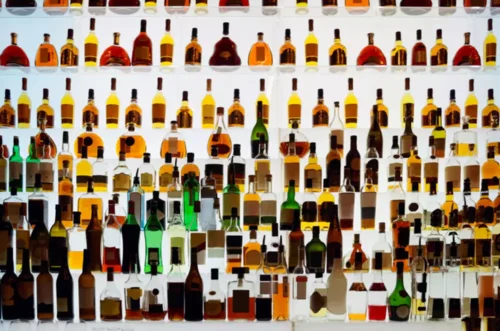
By implementing certain strategies, people can develop resilience, self-compassion, and adaptive coping skills to counteract the effects of the AVE and maintain lifelong sobriety. Additionally, individuals may engage in cognitive distortions or negative self-talk, such as believing that the relapse is evidence of personal weakness. We are dedicated to transforming abstinence violation effect the despair of addiction into a purposeful life of confidence, self-respect and happiness. We want to give recovering addicts the tools to return to the outside world completely substance-free and successful.
Physical Relapse

You might imagine a relapse as a single event that occurs during a moment of weakness. Recognize that setbacks are common during recovery and do not equate to failure. Rather, remember that relapse is a natural part of the journey and an opportunity for growth. Our addiction treatment network offers comprehensive care for alcohol addiction, opioid addiction, and all other forms of drug addiction. Our treatment options include detox, inpatient treatment, outpatient treatment, medication-assisted treatment options, and more. These patterns can be actively identified and corrected, helping participants avoid lapses before they occur and continue their recovery from substance use disorder.
Ohio Recovery Center
- Celebrating victories is a good thing, but it’s important to find constructive ways to appreciate your sobriety.
- There is a possibility that you might rationalize why you might not experience the same consequences if you continue to use.
- AVE occurs when someone who is striving for abstinence from a particular behavior or substance experiences a setback, such as a lapse or relapse.
- Equally bad can be the sense of failure and shame that a formerly “clean” individual can experience following a return to substance use.
- For example, I am a failure (labeling) and will never be successful with abstaining from drinking, eating healthier, or exercising (jumping to conclusions).
There is a possibility that you might rationalize why you might not experience the same consequences if you continue to use. A mindset shift caused by triggers or stress may lead you to take that drink or start using drugs again. A relapse can be caused by a cascading effect that includes several issues that occur before you begin using again, according to Marlatt. This strongly held belief increases the likelihood of relapse more than once. A person’s guilt is a difficult emotion to carry, one that can constantly replay in their minds, causing them to use substances again to ease their guilt. Gordon as part of their cognitive-behavioral model of relapse prevention, and it is used particularly in the context of substance use disorders.

Cognitive Dissonance
You may think that this time will be different, but if your drinking and drug use has gotten out of control in the past, it’s unlikely to be different this time. A period of successful recovery and abstinence is something to be celebrated. However, it can sometimes lead to the thought that you have earned a drink or a night of using drugs.
Relationship Addiction: 10 Warning Signs You’re Addicted to Love (& How to Break Free)

One night, she craves pizza and wings, orders out, and goes over her calories for the day. Relapse is viewed by psychologists as more of a process than a singular event. A relapse is the result of a series of events that occur over time, according to psychologist and researcher Alan Marlatt, Ph.D. Nevertheless, 40 to 60% of people who once were addicted to a substance and achieved sobriety relapse at some point, based on estimates from the National Institute on Drug Abuse (NIDA). Twelve-month relapse rates following alcohol or drug cessation attempts can range from 60 to 90 percent, and the AVE can contribute to extended relapses.
It is not necessarily a failure of self-control nor a permanent failure to abstain from using a substance of abuse. Those in addiction treatment or contemplating treatment can benefit from this aspect of relapse prevention. In conclusion, the abstinence violation effect is a psychological effect that impacts those in recovery, as well as those who are focused on making more positive behavioral choices in their lives.
- These responses, both physical and psychological, can be very difficult to deal with.
- The AVE describes the negative emotional response that often accompanies a failure to maintain abstinence from drugs or alcohol.
- One night, she craves pizza and wings, orders out, and goes over her calories for the day.
By reframing lapses as learning opportunities and teachable moments, cultivating self-compassion, and seeking support, individuals can navigate these challenges more effectively, increasing their chances of leading a healthier lifestyle. The Abstinence Violation Effect is a concept originally introduced by psychologist Alan Marlatt in the context of treating substance abuse. Twelve-step program It stems from the belief that individuals who establish strict rules of abstinence may be more vulnerable to relapse when faced with a violation of those rules.
